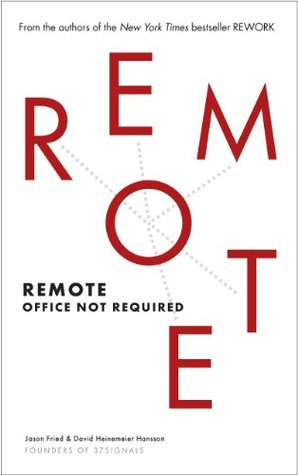More on this book
Community
Kindle Notes & Highlights
Read between
November 10 - November 25, 2020
A busy office is like a food processor—it chops your day into tiny bits. Fifteen minutes here, ten minutes there, twenty here, five there. Each segment is filled with a conference call, a meeting, another meeting, or some other institutionalized unnecessary interruption.
The ability to be alone with your thoughts is, in fact, one of the key advantages of working remotely.
“If we’re struggling with trust issues, it means we made a poor hiring decision. If a team member isn’t producing good results or can’t manage their own schedule and workload, we aren’t going to continue to work with that person. It’s as simple as that. We employ team members who are skilled professionals, capable of managing their own schedules and making a valuable contribution to the organization. We have no desire to be babysitters during the day.”
If Pratik in London has to wait five hours for someone in Chicago to come online in order to know what he should work on next, that’s half a workday lost. A company won’t waste time like that for long before declaring that “remote working just doesn’t work.”
One of the secret benefits of hiring remote workers is that the work itself becomes the yardstick to judge someone’s performance.
When meetings are the norm, the first resort, the go to tool to discuss, debate, and solve every problem, they become overused and we grow numb to the outcome. Meetings should be like salt—sprinkled carefully to enhance a dish, not poured recklessly over every forkful. Too much salt destroys a dish. Too many meetings can destroy morale and motivation.
Further, meetings are major distractions. They require multiple people to drop whatever it is they’re doing and instead do something else. If you’re calling a meeting, you better be sure pulling seven people away from their work for an hour is worth seven hours of lost productivity. How often can you say that a given meeting was worth it? Remember, there’s no such thing as a one-hour meeting. If you’re in a room with five people for an hour, it’s a five-hour meeting.
You wake up by opening your laptop in bed and answering a few work emails from last night. Then you make yourself a sandwich and work through lunch. After dinner, you feel the need to check in with Jeremy on the West Coast about that one thing. Before you know it, you’ve stretched the workday from 7am to 9pm.
A manager’s natural instinct is to worry about his workers not getting enough work done, but the real threat is that too much will likely get done.
Look at your progress toward the end of the day and ask yourself: “Have I done a good day’s work?”
Being a good writer is an essential part of being a good remote worker.
Would-be remote workers and managers have a lot to learn from how the open source software movement has conquered the commercial giants over the past decades. It’s a triumph of asynchronous collaboration and communication like few the world has ever seen.
Start by empowering everyone to make decisions on their own. If the company is full of people whom nobody trusts to make decisions without layers of managerial review, then the company is full of the wrong people.
Second, you must make sure that people have access, by default, to everything they need. Most companies start out by adopting the reverse policy: everyone is only granted access to information and applications on a need-to-know basis. That’s completely unnecessary. Unless you work in the military, or belong to one of the very rare firms that deal with super-confidential information—information that even trusted employees can’t be trusted with—keeping these access barriers in place is just making it difficult for everyone to get their work done.
Part of the problem is the occasional pride that managers take in being Mr. or Ms. Roadblock. Having to be asked—even courted—gives them a certain perverse satisfaction. Do not discount how powerful this syndrome can be.
the only reliable way to muster motivation is by encouraging people to work on the stuff they like and care about, with people they like and care about. There are no shortcuts.


